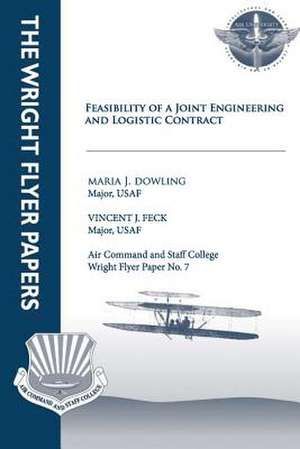Feasibility of a Joint Engineering and Logistics Contract
Autor Maj Maria J. Dowling, Maj Vincent J. Fecken Limba Engleză Paperback
Preț: 108.71 lei
Nou
Puncte Express: 163
Preț estimativ în valută:
20.81€ • 21.67$ • 17.27£
20.81€ • 21.67$ • 17.27£
Carte disponibilă
Livrare economică 24 ianuarie-07 februarie
Preluare comenzi: 021 569.72.76
Specificații
ISBN-13: 9781479206414
ISBN-10: 1479206415
Pagini: 56
Dimensiuni: 152 x 229 x 3 mm
Greutate: 0.09 kg
Editura: CREATESPACE
ISBN-10: 1479206415
Pagini: 56
Dimensiuni: 152 x 229 x 3 mm
Greutate: 0.09 kg
Editura: CREATESPACE
